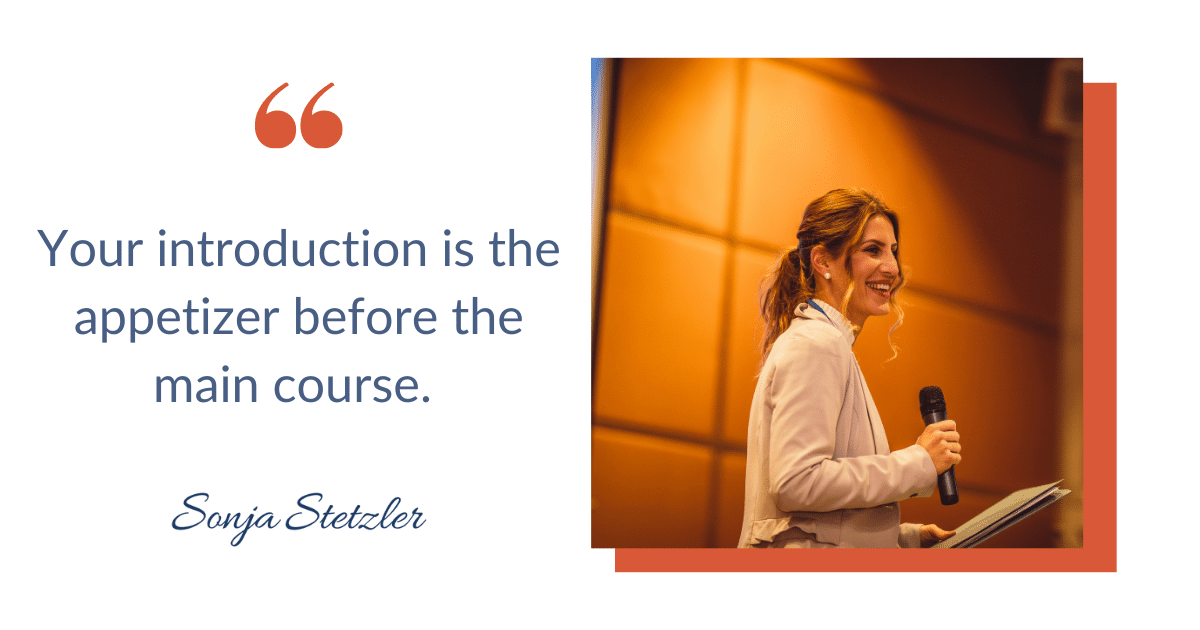Although some may not regard their introduction as a high priority, a good speech introduction has many benefits for a speaker.
I’ve recently had several clients who were preparing presentations to deliver this spring, and the topic of their introductions came up. How should they be introduced? What makes a good speaker introduction?
My recommendation is that you write your own introduction for the event moderator or your host to introduce you. Don’t leave it to chance for your introducer to craft your introduction the way you would like to be introduced – you might be disappointed.
Many of us who have been in audiences where speaker introductions were nothing more than a laundry list of a speaker’s accomplishments or a reading of their resume or CV have resorted to catching up on emails until the speaker took the mic.
It doesn’t have to be that way. Your introduction is the appetizer before the main course – it should be interesting and lead your audience to want to know more.
The purpose of your introduction is to set the stage for your presentation, to warm up your audience, to enhance your credibility, and to effectively connect you with your audience before you take the microphone.
A good introduction is a mini-speech of about 1 – 3 minutes (depending on the type of event) that gains the audience’s attention and interest. It sets the tone for your presentation, builds your credibility on your topic, and most importantly, makes you relatable.
What information goes into an engaging speaker introduction?
- What is the topic?
- Why does this topic matter to this audience? What do they have to gain by listening?
- Who is the speaker and what qualifies the speaker to deliver on this topic?
Professional Masters of Ceremonies recommend ending the introduction with the speaker’s name, For example, “Please welcome, founder and CEO of xyz, John Smith.”
On the flip side, if you are in a position to introduce a speaker, and the speaker has not submitted an introduction, research the speaker’s website or LinkedIn profile. Obtaining good background information is essential to crafting a great introduction. In addition, set up an interview to get to know the speaker.
Here are a few questions that can guide the conversation with the speaker:
- What are you looking to accomplish with your presentation?
- What are 2 or 3 things you want the audience to know about you?
- Tell me what started your interest in this topic?
- Is there anything specific you would like for me to mention (or not mention)?
Know how to pronounce a speaker’s name correctly (you may need to write it phonetically in your notes). If you are able to pick up on a short story about the speaker that relates to their topic, this can make a valuable connection for the speaker with the audience. Lastly, don’t forget to practice the introduction as it builds your professionalism as well as the speaker’s.
Remember that your bio is not your introduction. Make sure you are introduced in a way that enhances your credibility and brings value to your audience.

